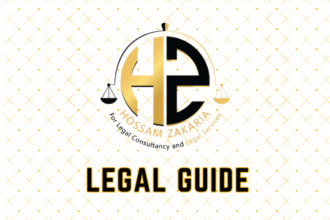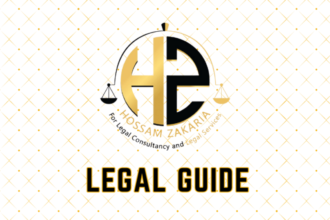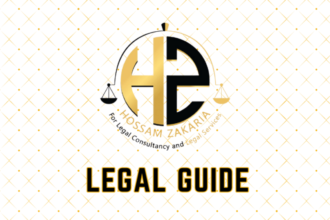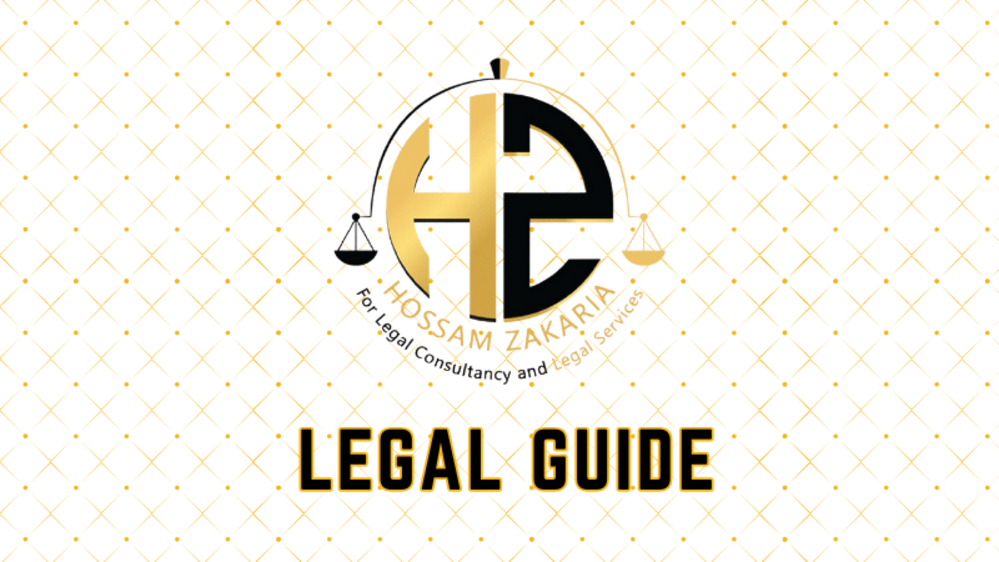Introduction: Understanding Foreign Direct Investment in the UAE Landscape
The United Arab Emirates (UAE) has grown into a global destination for international business, celebrated for its robust infrastructure, strategic geography, and progressive regulatory environment. Over recent years, the UAE government has introduced sweeping reforms to federal laws and regulations impacting Foreign Direct Investment (FDI), directly shaping market access and legal compliance for foreign investors. Most notably, Federal Decree-Law No. 26 of 2020 and the subsequent Cabinet Resolution No. 16 of 2020 mark a pivotal departure from the onshore company ownership restrictions, granting majority foreign ownership in mainland sectors—a paradigm shift that continues to influence the 2025 regulatory landscape.
This article offers a comprehensive analysis of the FDI regulatory framework in the UAE as of 2025, providing practical insights, legal updates, and actionable guidance for businesses, executives, and legal practitioners. Whether you are leading an international corporation seeking entry into the UAE or advising clients on compliance, understanding these regulations is crucial for safeguarding investments and capitalizing on new market opportunities.
Table of Contents
- Legal Context and Evolution of FDI Regulation in UAE
- Major Updates in UAE FDI Law for 2025
- Core Components of the UAE FDI Framework
- Sectoral Restrictions and the ‘Positive List’
- Implications of 100% Foreign Ownership
- Legal Compliance Strategies for FDI in UAE
- Comparison of Old and New FDI Regimes
- Impact Assessments and Practical Scenarios
- Non-Compliance Risks and Penalties
- Looking Forward: Trends and Best Practices for 2025 and Beyond
- Conclusion and Strategic Recommendations
Legal Context and Evolution of FDI Regulation in UAE
Historical Restrictions: The 49% Cap
Historically, the UAE Commercial Companies Law (Federal Law No. 2 of 2015) mandated that foreign investors could not own more than 49% of an onshore (mainland) company, with a UAE national or entity holding the remaining 51%. This constraint was primarily motivated by a desire to protect national interests and ensure Emirati participation in the local economy. While this regime fostered strong partnerships, it also deterred some foreign direct investment, particularly in strategic industries and sectors where international expertise was crucial.
The Liberalization Wave: Key Legal Milestones
The transformative shift began with Federal Decree-Law No. 19 of 2018 (the “FDI Law”), which introduced the concept of a ‘Positive List’ of sectors eligible for increased foreign ownership. This was further advanced by Federal Decree-Law No. 26 of 2020, which amended the Commercial Companies Law to permit 100% foreign ownership in many onshore companies, subject to Cabinet decisions. These regulatory changes have been accompanied by periodic Cabinet Resolutions (e.g., Cabinet Resolution No. 16 of 2020), Ministerial Circulars, and implementation guidelines published by the UAE Ministry of Economy and the Department of Economic Development (DED).
Major Updates in UAE FDI Law for 2025
Key Legal Instruments and Government Authorities
As of 2025, the operative legal framework governing FDI in the UAE includes:
- Federal Decree-Law No. 26 of 2020 (amending Federal Law No. 2 of 2015)
- Cabinet Resolution No. 16 of 2020 (Positive List and implementation)
- Emirate-level guidelines and DED directives
- Ministerial Circulars and Cabinet updates (as published in the Federal Legal Gazette)
2025 Lateral Developments
Further to periodic updates, the ‘Positive List’ of sectors eligible for 100% foreign ownership has been expanded, and more activities are now subject to open competition. In addition, compliance and economic substance reporting requirements have been codified, reflecting an alignment with international best practices and OECD guidelines. Special attention has been paid to anti–money laundering (AML), Know Your Customer (KYC), and Ultimate Beneficial Ownership (UBO) disclosures, reinforced through updated Cabinet Decrees and UAE Ministry of Economy regulations.
Core Components of the UAE FDI Framework
1. The ‘Positive List’ vs. The ‘Negative List’
At the heart of the FDI law are two regulatory categories for economic activities:
- The Positive List – Sectors where 100% foreign ownership is expressly permitted (e.g., renewable energy, logistics, hospitality, education, technology, manufacturing).
- The Negative List – Strategic or sovereign sectors where full foreign ownership remains restricted (e.g., oil exploration, defense, banking, insurance, telecommunications, certain transport sectors).
2. Emirate-Level Discretion
While Federal Decree-Law No. 26/2020 establishes the overall regulatory structure, implementation and licensing reside at the emirate level. Each emirate’s Department of Economic Development (DED) or equivalent authority may interpret and apply FDI restrictions based on local policies, urban planning needs, and national security considerations.
3. Licensing and Regulatory Oversight
Foreign investors must obtain the requisite trade license from the relevant DED, reflecting the chosen activity on the Positive List. Additional sectoral approvals may be necessary for regulated industries (e.g., healthcare, education, financial services). The UAE Ministry of Economy oversees cross-emirate harmonization and compliance auditing.
4. Economic Substance and UBO Reporting
To align with international transparency and anti–tax avoidance standards, FDI entities are required to file Economic Substance Reports (ESR) and Ultimate Beneficial Owner (UBO) declarations annually. Administrative fines and business license suspensions may be imposed for non-compliance, according to the latest Cabinet Resolution No. 58 of 2020 and Ministry guidance.
Sectoral Restrictions and the ‘Positive List’
The Anatomy of the Positive and Negative Lists
| List Type | Description | Examples of Sectors/Activities | Ownership Allowed |
|---|---|---|---|
| Positive List | Sectors where 100% foreign ownership is permitted by federal law | Manufacturing, E-commerce, Hospitality, Renewable Energy, Logistics, Education, Healthcare | 100% Foreign, subject to some conditions |
| Negative List | Sectors designated as strategic or sovereign interests, reserved partially/wholly for UAE nationals | Oil exploration, Defense, Military, Financial institutions, Insurance, Hajj and Umrah services, Certain fisheries, Printing currency | Max 49% Foreign; 51% UAE National |
Cabinet Resolution No. 16 of 2020
The current Positive List is detailed in Cabinet Resolution No. 16 of 2020, available on the UAE Ministry of Justice and Federal Legal Gazette websites. The list is periodically updated, most recently in 2025, expanding permissible sectors in green technologies, digital commerce, and specialized manufacturing. It is crucial for corporate counsel and compliance teams to confirm the up-to-date status of sector eligibility before structuring corporate vehicles or submitting trade license applications.
Implications of 100% Foreign Ownership
Legal, Commercial, and Strategic Considerations
The introduction of 100% foreign ownership in qualified sectors presents significant commercial opportunities but also requires careful legal planning. Key implications include:
- Corporate Structuring: Foreign investors can now directly hold up to 100% of shares in a UAE mainland company, obviating the need for a local Emirati sponsor for relevant activities.
- Profit Repatiation: Simplified ownership structures enable more efficient profit repatriation and dividends.
- Operational Flexibility: Less dependency on local service agents and sponsors increases agility and operational control.
- Related Obligations: 100% ownership does not exempt investors from sector-specific regulations (e.g., local content requirements, Emiratisation targets for certain sectors, taxation obligations).
Strategic Scenario Example
Consider a large European logistics group seeking to enter the Dubai market under the Positive List. Where previously the company would have required a 51% Emirati partner, it may now establish a wholly owned UAE mainland subsidiary, providing strategic control over its governance, IP rights, and commercial agreements. Additional approvals may still be required from the Dubai Maritime City Authority or other sectoral bodies—emphasizing the importance of multi-tier legal due diligence.
Legal Compliance Strategies for FDI in UAE
Licensing and Procedural Steps
| Step | Details | Competent Authority |
|---|---|---|
| 1 | Identify activity on Positive List and check for sector-specific requirements | DED, UAE Ministry of Economy |
| 2 | Prepare incorporation documents and draft Articles of Association | DED, Legal Advisor |
| 3 | Submit UBO declaration and ESR, as required | DED, Ministry of Economy |
| 4 | Submit license application, pay fees | DED |
| 5 | Obtain trade license and commence business activity | DED |
Practical insight: For multi-emirate operations (e.g., companies with branches in Abu Dhabi and Dubai), coordinate compliance and reporting obligations across each emirate, and reconcile policies with Ministry of Economy audits.
Key Documentation and Reporting
Ensure ongoing compliance with the following records:
- Ultimate Beneficial Ownership registers (UBO)
- Annual Economic Substance Reports (ESR)
- Up-to-date governance documents and corporate records
Visual suggestion: Place a compliance checklist infographic showing annual filings and common pitfalls.
Comparison of Old and New FDI Regimes
Table: Key Differences
| Feature | Pre-Reform Law (up to 2018) | Current FDI Regime (2025) |
|---|---|---|
| Ownership Cap | Max 49% foreign (mainland) | Up to 100% foreign in approved sectors |
| Local Sponsor Requirement | Mandatory Emirati sponsor (51%) | Not required (Positive List sectors) |
| Licensing Authority | DED, with federal consent | Dedicated DED FDI units; more streamlined |
| Sectors Permitted | Limited; mainly free zones | Wider range per Cabinet Resolution No. 16/2020 |
| Compliance | Basic reporting | Enganced UBO & ESR requirements, AML controls |
Impact Assessments and Practical Scenarios
Case Study: Tech Start-Up Entry Strategy
Scenario: An Indian fintech company intends to access the UAE’s consumer market. Under the pre-2020 regime, their options might be limited to a free-zone presence, restricting onshore customer access. Under the new regime, fintech is on the Positive List (subject to additional Central Bank licensing), enabling direct onshore licensing and full foreign equity without relinquishing strategic IP or equity interests to a local partner.
Case Study: Manufacturing Expansion
Scenario: A German auto-parts manufacturer establishes a wholly owned Abu Dhabi subsidiary, benefiting from 100% foreign capital and streamlined regulatory approvals. The ongoing challenge will be to ensure UBO reporting, ESR compliance (especially if part of a larger multinational group), and to stay alert to Emiratisation quotas that may apply in future sectoral regulations.
Non-Compliance Risks and Penalties
Legal Risks
- Failure to obtain the correct license or misclassification of economic activity may result in fines, license suspension, or criminal liability under Federal Decree-Law No. 26/2020 and relevant DED codes.
- Non–submission of ESR or UBO declarations may lead to substantial fines (ranging from AED 20,000 to AED 100,000) and public register inclusion (as per Cabinet Resolution No. 58/2020).
- Breach of sector-specific restrictions (e.g., attempting to gain 100% ownership in a banking entity) may cause revocation of licenses and criminal prosecution.
Compliance Strategies
- Engage with a UAE legal consultant for a pre-application due diligence review.
- Obtain clear written rulings from the DED and relevant ministries for ambiguous sectors.
- Maintain regular internal legal audits of compliance documentation (UBO, ESR, license updates).
- Continuously monitor for federal and emirate-level legislative amendments.
Visual suggestion: Integrate a penalty comparison table or flowchart showing consequences for common compliance failures.
Looking Forward: Trends and Best Practices for 2025 and Beyond
Emerging Legal Trends
- Expansion of the Positive List: Anticipate further liberalization, with ongoing addition of knowledge economy and advanced technology sectors.
- AI and Digital Regulation: New Cabinet Resolutions addressing data, AI, and cyber activities will influence the eligibility criteria and compliance posture of tech-driven investments.
- Sustainability and ESG: Environmental, Social, and Governance (ESG) standards are now embedded in investment licensing; foreign investors should monitor Cabinet Decrees for ESG-related compliance requirements.
Best Practices for FDI Market Entry and Compliance
- Pre-Investment Legal Due Diligence – Scrutinize the current Positive and Negative Lists; confirm with both federal and DED authorities.
- Corporate Structuring – Determine optimal entity type, board composition, and governance to match business goals and FDI requirements.
- Integrated Compliance – Implement robust systems for periodic UBO, ESR, and AML reporting, leveraging both legal consultancy and in-house teams.
- Proactive Stakeholder Engagement – Develop relationships with DED, Ministry of Economy, and sector regulators to anticipate changes and ensure smooth operations.
- Continuous Monitoring – Assign senior management or compliance officers to track legal updates, Cabinet Resolutions, and sector-specific Emiratisation policies.
Conclusion and Strategic Recommendations
The UAE’s ongoing FDI reform underlines its commitment to fostering a dynamic, investor-friendly environment while balancing national interests and security. Federal Decree-Law No. 26 of 2020 and Cabinet Resolution No. 16 of 2020 have transformed the commercial landscape—unlocking opportunities for 100% foreign ownership in numerous sectors and spurring economic diversification.
However, these opportunities carry new compliance burdens. Investors must remain vigilant about sectoral limits, ever-changing Positive Lists, and heightened transparency obligations (UBO and ESR). Non-compliance carries serious risks, including punitive fines and business interruptions. Reliable legal counsel, routine audits, and proactive adaptation to legislative updates are essential for sustained, secure growth in the UAE.
In this evolving climate, best practice dictates a strategic, compliance-first approach: Begin with comprehensive due diligence, leverage specialist legal consultancy, and stay closely attuned to regulatory shifts. By doing so, investors and corporates can position themselves to not only comply with current FDI regulations but also thrive in the innovative UAE market of 2025 and beyond.



